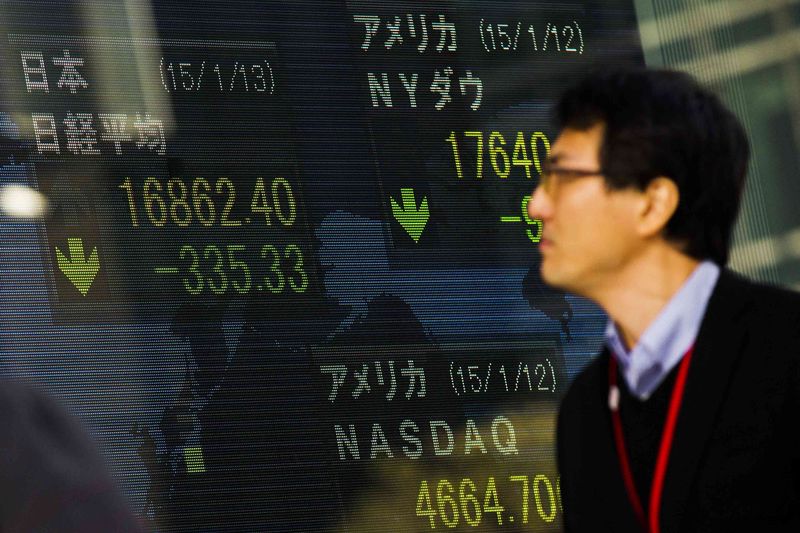Investing.com’s stocks of the week
Investing.com - Asian shares fell on Friday with Greater China down sharply ahead of the Lunar New Year holiday period as investors turn cautious and look to exit existing long positions.
Japan's Nikkei 225 fell 2.87% with Fast Retailing down 4.13%, while Australia's S&P/ASSX 200 eased 0.81%.
In Greater China, the Shanghai Composite fell 4.11% and the Hang Seng index dropped 3.11%. In China, consumer prices rose 0.6%, compared with a 0.7% gain seen on month for January and at a 1.5% rise as expected on year. Producer prices rose 4.3% on year as expected. The Aussie's fortunes are closely ties to economic conditions in top trade partner China.
China's central bank on Friday released temporary liquidity worth almost 2 trillion yuan ($316.28 billion) ahead of the week-long long Lunar New Year holidays.
The People's Bank of China had announced in December that it would allow some commercial banks to temporarily keep less required reserves to help them cope with the heavy demand for cash ahead of the festivities that are seen as the largest annual human migration as people travel to gather with relatives.
HSBC and China Construction Bank lost 3.17% and 5.07% respectively.
Overnight, Wall Street closed sharply lower on Thursday as the selloff resumed offsetting bullish earnings and upbeat labor market data.
The Dow Jones Industrial Average closed lower at 23,860. The S&P 500 closed 3.75% lower, while the Nasdaq Composite closed at 6777.16, down 2.93%.
Also weighing on sentiment was uncertainty over whether a far-reaching budget deal would be approval amid a CNBC report suggesting that Rand Paul was holding up the Senate's vote on the deal.
The vote comes amid opposition from both sides of the political isle amid concerns that the budget deal does nothing for young immigrants. The budget deal would have to be passed before midnight to avoid a government shutdown.
Upbeat labor market did little to boost sentiment amid widespread fear in the market as all sectors fell more than 1% with financials leading the decline, down roughly 4.5%, despite the prospect of higher interest rates.
Higher interest rates are seen as boon for banks, boosting net interest margin – the difference between the interest income generated by banks and the amount of interest paid out to their lenders.
The U.S. Department of Labor reported Thursday that initial jobless claims decreased 9,000 to a seasonally adjusted 221,000 for the week ended Feb. 4, beating forecast for a 6,000 increase.
